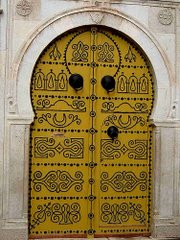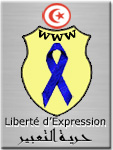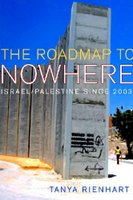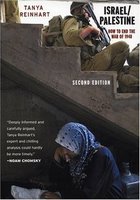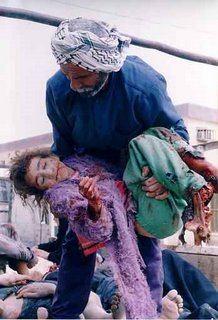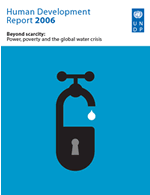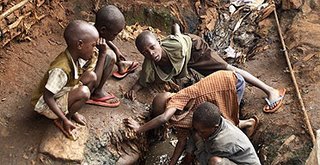Pourquoi dans certains pays arabes on n’a pas le droit de critiquer sans être assimilé à un traître et si c’est un étranger qui le fait, on le traite de colonialiste. Si quelqu’un s’aventure à critiquer, au lieu de débattre et essayer de trouver une solution, on commence à sortir les arguments du genre « Il ne faut pas généraliser, c’est une exception » « pourquoi on ne parle que des mauvaises choses, on n’est pas si mauvais que ca ! » « Ces trucs existent partout » « tu n’aimes pas ton pays, tu es un vendu »
Bien sur qu’il ne faut pas généraliser, mais il faut pointer du doigt ce qui ne marche pas. C’est comme ca qu’on se rend compte qu’il faut le réparer ou au moins essayer. Si a chaque fois que quelqu’un parle d’un problème, on lui dit qu’il ne faut pas généraliser, le problème ne sera jamais résolu, n’est ce pas ? Et puis si on a peur pour sa réputation, il n’y a qu’à travailler dur pour éviter qu’il y ait des problèmes.
Et puis c’est tout à fait naturel de discuter ce qui ne marche pas, et non de ce qui fonctionne correctement, car ce dernier est la norme! Quand quelqu’un fait son travail c’est normal, quand une institution exécute et atteint ses objectifs c’est normal, quand on fait ce qu’on est supposé faire, c’est normal !!!Ce n’est pas un exploit. Si on n’arrête pas d’en parler, notre crédibilité va en souffrir et cela tourne parfois au comique. A lire les éditoriaux des journaux de quelque pays arabe, tout est bien, toute les institutions sont excellentes et tout le monde est content. Je me demande pourquoi quelqu’un serait intéressé à lire cela. C’était plus simple d’écrire un seul mot « RAS » ou rien à signaler !
Et puis si on est aussi parfait que cela, tout le monde doit le savoir et tout le monde doit être choqué de lire quelqu’un qui critique ce système parfait. Malheureusement, la majorité tend à être d’accord (secrétement) que le problème existe et c’est tant mieux car c’est déjà mieux que de le nier, ce qui n’avance point les choses et n’aide pas au développement.
Et puis arrêtons de nous comparer qu’aux pays qui sont moins performant que nous, c’est la mentalité des perdants. Comparons nous aux grands de ce monde, acceptons le challenge, travaillons dur pour s’y rapprocher et se comparer a eux. Le système académique est le même dans le monde entier, et grâce a l’internet on a accès aux mêmes informations et connaissances. Arrêtons d’accepter l’aide de ces pays qui nous donnent de l’argent souvent sous forme de prêt et nous obligent a acheter leurs produits ou services. Un exemple, pourquoi le système d’eGovernment tunisien doit être fait par les italiens. On ne doit accepter leur aide financière que si elle est inconditionnelle. On a assez d’ingénieurs et de compétences pour développer ce genre d’infrastructure, ce n’est pas une centrale nucléaire, c’est du logiciel et ils ne sont pas meilleurs que nous dans ce domaine.
Acceptons le défi, éliminons les obstacles. Exposons les problèmes, parlons en, faisons participer tout le monde, éduquons nous, changeons notre mentalité de suiveur, voyons grands, soyons ambitieux. Une nation ne peut pas se développer sans l’apport de tout le peuple, on doit tous participer, on doit tous donner notre avis. Un vieux proverbe tunisien dit « Ecoutez les paroles qui vous blessent et n’écoutez pas ceux qui vous flattent ». Comment encourager les gens à participer a tracer leur destinée si on les accuse de trahison !
Qu’est ce qu’il y a de plus normal que de combattre la délinquance, l’absence des valeurs, ou la malhonnêteté ? Pourquoi doit on passer sous silence l’incompétence d’un conseil municipal ou d’un service public ? Pourquoi les journalistes trouvent normal d’insulter un joueur de football ou un chanteur mais n’osent jamais critiquer le travail d’un responsable, si petit soit il ? A la limite ils peuvent parler du problème sans mettre en cause personne, l’exposer, le documenter avec des preuves. Je ne crois pas qu’ils vont aller en prison pour ca. C'est pas la personne qu'on attaque, c'est le problème!
Comment faire bouger les choses, comment se débarrasser de ces obstacles, comment secouer ce système pour enlever les complexes, sans en parler, sans pointer le doigt, sans exposer les maladies et sans dire la vérité et l’accepter ? On doit apprendre à voir la vérité en face, apprendre de nos erreurs et construire sur nos succès. C’est le seul moyen d’évoluer. On doit être libre d’exercer nos droits comme ils sont énoncés dans la constitution de tout les pays arabes.
Parfois on reproche a ceux qui critiquent que c’est contre-productif de critiquer sans proposer de solutions. On oublie parfois que certains problèmes soulevés sont souvent le résultat d’un travail mal fait, d’une erreur de jugement, d’incompétence, d’irresponsabilité ou d’inconscience. Quelle solution croyez-vous doit être adoptée quand une institution ou quelqu’un dans un poste n’est pas capable de faire son boulot correctement? Parfois on critique tout un système et on n’est pas capable individuellement de trouver une solution, doit on se taire pour autant?
Et puis comment changer la mentalité? Est ce qu’on doit demander à tout le monde de changer individuellement pour que la société change? Est ce qu’il doit avoir une incitation et volonté du gouvernement pour encourager le changement individuel? Comment peut on provoquer une prise de conscience générale de la nécessite de ce changement pour qu’on se développe? Comment?
Ah oui, avant de finir. Il ya une autre chose en commun entre ces pays arabes. La plupart perdent beaucoup de temps, d’argent et de neurones pour essayer de balancer entre la religion, la culture et le développement ou a faire semblant de le faire. Moi je crois qu’on doit mettre toutes les ressources disponibles et utiliser tout notre temps et énergie a nous développer et assurer un meilleur futur a nos enfants, qu’on soit musulman, juif, chrétien ou laïque. Qu’on soit fils d’immigrant ou tunisois, du sud ou du nord. La culture et la religion ne sont pas des obstacles, au contraire c’est des éléments motivants qui nous définissent et font partie de soi. Pensons a éliminer cette mentalité de soumis et de perdants et travaillons d’une seule main pour nous et pour nos enfants. Donnons la priorité au développement et si il ya un conflit, je donne la priorité a ce dernier. La culture ou la religion ne doivent pas nous freiner, ce choix est évident pour moi. Une femme peut travailler avec la même efficacité avec un voile, une mini jupe ou même les deux a la fois :-)
Let’s pick the right battles.
PS: Je m'excuse, je sais que cette note manque de structure, cela reflète ma frustration à ne pas trouver des réponses à ces questions.
